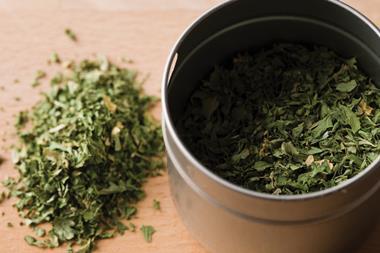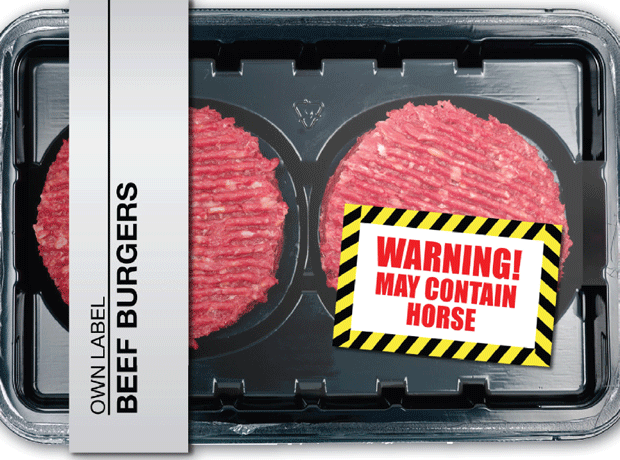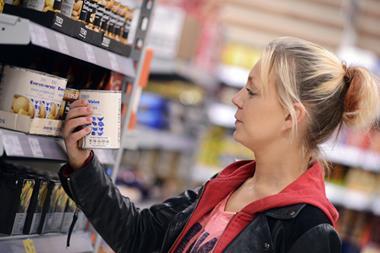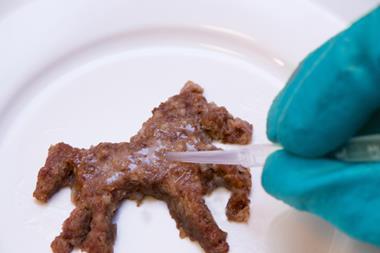The informality in many grocery supply chains is the perfect breeding ground for food fraud, say forensic accounting experts Professor Lisa Jack and Jim Gee, partner, PKF Littlejohn LLP.
With the apparent torrent of new food adulteration incidents coming to light, the Elliott Report couldn’t come soon enough. Since its publication last month changes abound, with the government almost immediately promising the creation of a food crime unit within the Food Standards Agency. The recent announcement of a new food investigations unit in Ireland also represents a win for Elliott and is a step in the right direction.
However, in order to really make a stand against food fraud it is necessary for every segment of the food sector to get involved and, like other sectors, make itself better protected and more resilient to fraud.
Keeping fraudulent goods off of our shelves is in the best interests of both retailers and the public. It is not an option to imagine this is someone else’s responsibility. If the price from a supplier seems too good to be true, it probably is.
Retailers can do more to protect themselves and the public against food fraud by seeking to pre-empt the problem. In other sectors once plagued by fraud, a combination of stronger anti-fraud cultures, greater deterrence and the re-design of vulnerable processes and systems has proved to be most effective – rather than simply hoping the problem will not occur and then having to react after it has.
Due to the often extensive food supply chains in UK grocery and the necessity to keep up a steady supply of food, food businesses will always be vulnerable to the fraudsters. Pressure on timings and costs within the system represent a real opportunity for fraudsters, allowing them to capitalize on lax rules resulting from the need for haste and the desire for low costs above all else.
The requirement to keep things moving within the supply chain tends to result in a reliance on verbal communication and terse emails rather than formal contracts. This informality is a perfect opportunity for food fraud to go unnoticed. Furthermore, despite efforts being made through auditing and supplier questionnaires, these questions have not typically focused on the possibility of food fraud in the past.
Considering all these factors we disagree with the comment made by Andrew Opie of the BRC last month that retailer practices don’t risk a repeat of Horsegate. Both retailers and the public remain potential victims of food fraud and instances keep emerging. Examples of illicit Manuka honey have been publicised, for instance. The food fraud genie is well and truly out of the bottle.
So what can food businesses do to protect themselves and the public? Well, steps are of course being taken already, with improvements to supply chain traceability being made even prior to Elliott’s publication. Furthermore, Elliott recently welcomed Tesco’s reaction to a meat contamination scare – involving pork sausages containing chicken and venison burgers containing lamb – praising the retailer for its transparency and its resolution to thoroughly investigate the cause of contamination so that it can be prevented in future.
Although we agree with this commendation, food fraud is about much more than contamination – retailers may not be supplied with the quality or quantity of food which they have procured for example – and much more work needs to be done.
And just as food fraud is about more than contamination, so fraud in the industry appears to be more than food fraud. We know food frauds are linked to other frauds such as tax and duty evasion, money laundering and false accounting.
Food fraud might be providing the impetus for building due diligence and better governance in supply chains. The benefits in terms of building resilience to fraud in general and the reduction to businesses of the cost of fraud are waiting to be found.
Lisa Jack is professor of accounting, Food Fraud Group, at the Centre for Counter Fraud Studies, University of Portsmouth. Jim Gee is a partner at PKF Littlejohn LLP.



















No comments yet